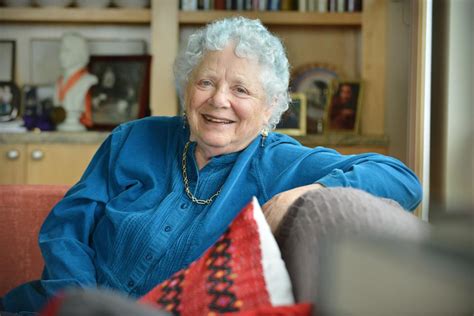A Quote by Olga Tokarczuk
I create doubt in the reader's mind. That is what literature is for: to provoke, to raise doubts, to talk about things that are not obvious.
Related Quotes
Characters who are absolutely sure about what they do, who plunge ahead without fear, are not that interesting. We don’t go through life that way. In reality, we have doubts just like everyone else.
Bringing your Lead’s doubts to the surface in your plot pulls the reader deeper into the story, and this is an excellent way to coax the reader to lose himself in the story world you’re about to create.
[Russians would like to] undermine the West and its institutions, create doubts about NATO, create doubts about the European Union, support nationalists on the right just as the Soviet communists supported communists on the left. Weaken the West in general and create an atmosphere in which we`re uncertain about ourselves.
In my couple of books, including Going Clear, the book about Scientology, I thought it seemed appropriate at the end of the book to help the reader frame things. Because we've gone through the history, and there's likely conflictual feelings in the reader's mind. The reader may not agree with me, but I don't try to influence the reader's judgment. I know everybody who picks this book up already has a decided opinion. But my goal is to open the reader's mind a little bit to alternative narratives.
It is the specialist's task to talk about means, about centimeters. An artist's task is to talk about the goal, about kilometers, thousands of kilometers. The organizing role of art consists of infecting the reader, of arousing him with pathos or irony -- the cathode and anode in literature. But irony that is measured in centimeters is pathetic, and centimeter-sized pathos is ridiculous. No one can be carried away by it. To stir the reader, the artist must speak not of means but of ends, of the great goal toward which mankind is moving.
And so, through all the thick mists of the dim doubts in my mind, divine intuitions now and then shoot, enkindling my fog with a heavenly ray. And for this I thank God; for all have doubts; many deny; but doubts or denials, few along with them, have intuitions. Doubts of all things earthly, and intuitions of some things heavenly; this combination makes neither believer nor infidel, but makes a man who regards them both with equal eye.
Cold hearts are not anxious enough to doubt. Men who love will have their misgivings at times; that is not the evil. But the evil is, when men go on in that languid, doubting way, content to doubt, proud of their doubts, morbidly glad to talk about them, liking the romantic gloom of twilight, without the manliness to say,--I must and will know the truth. That did not John. Brethren, John appealed to Christ.
Nice writing isn't enough. It isn't enough to have smooth and pretty language. You have to surprise the reader frequently, you can't just be nice all the time. Provoke the reader. Astonish the reader. Writing that has no surprises is as bland as oatmeal. Surprise the reader with the unexpected verb or adjective. Use one startling adjective per page.
If thy faith have no doubts, thou has just cause to doubt thy faith; and if thy doubts have no hope, thou hast just reason to fear despair; when therefore thy doubts shall exercise thy faith, keep thy hopes firm to qualify thy doubts; so shall thy faith be secured from doubts; so shall thy doubts be preserved from despair.






































